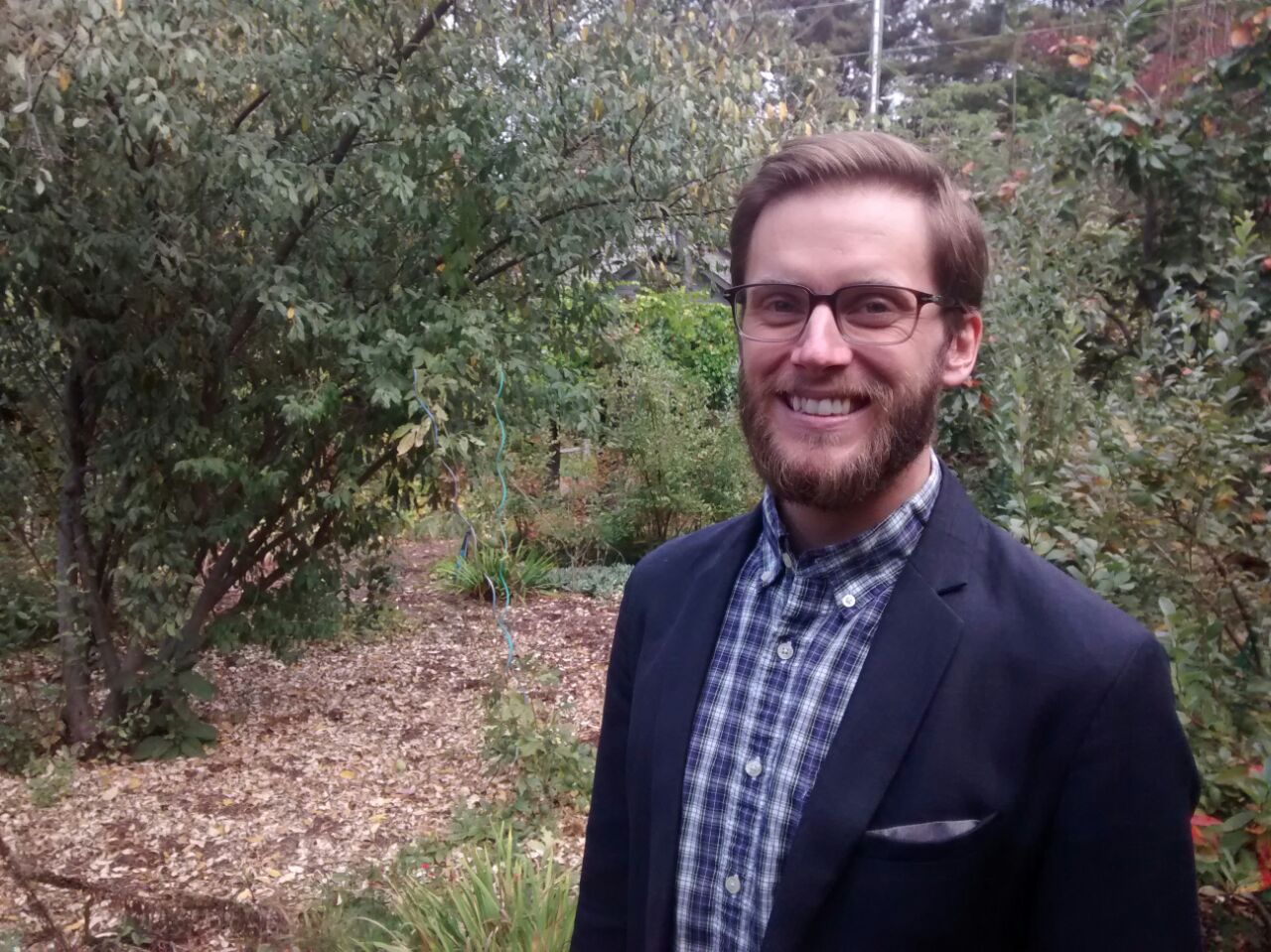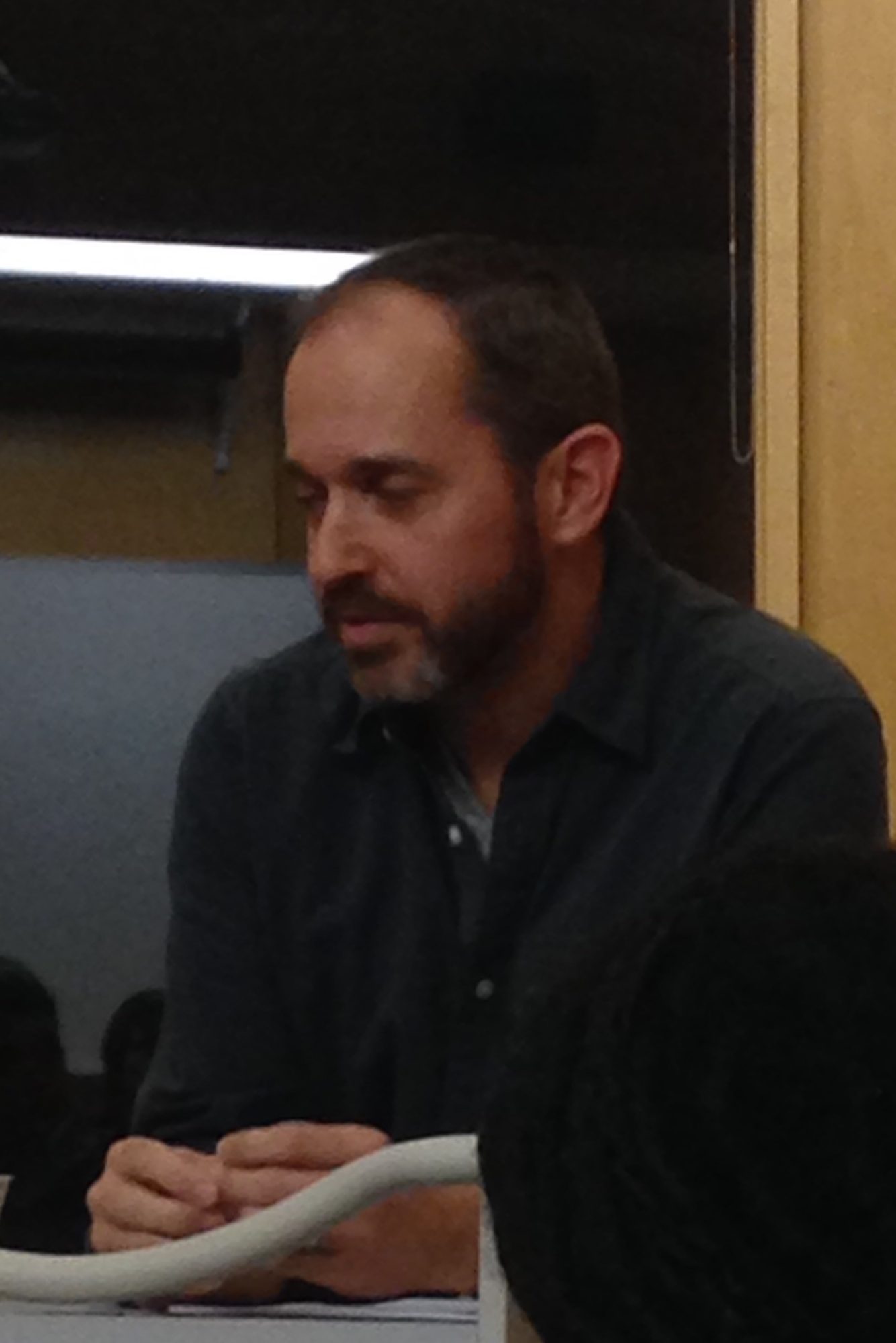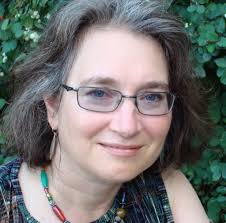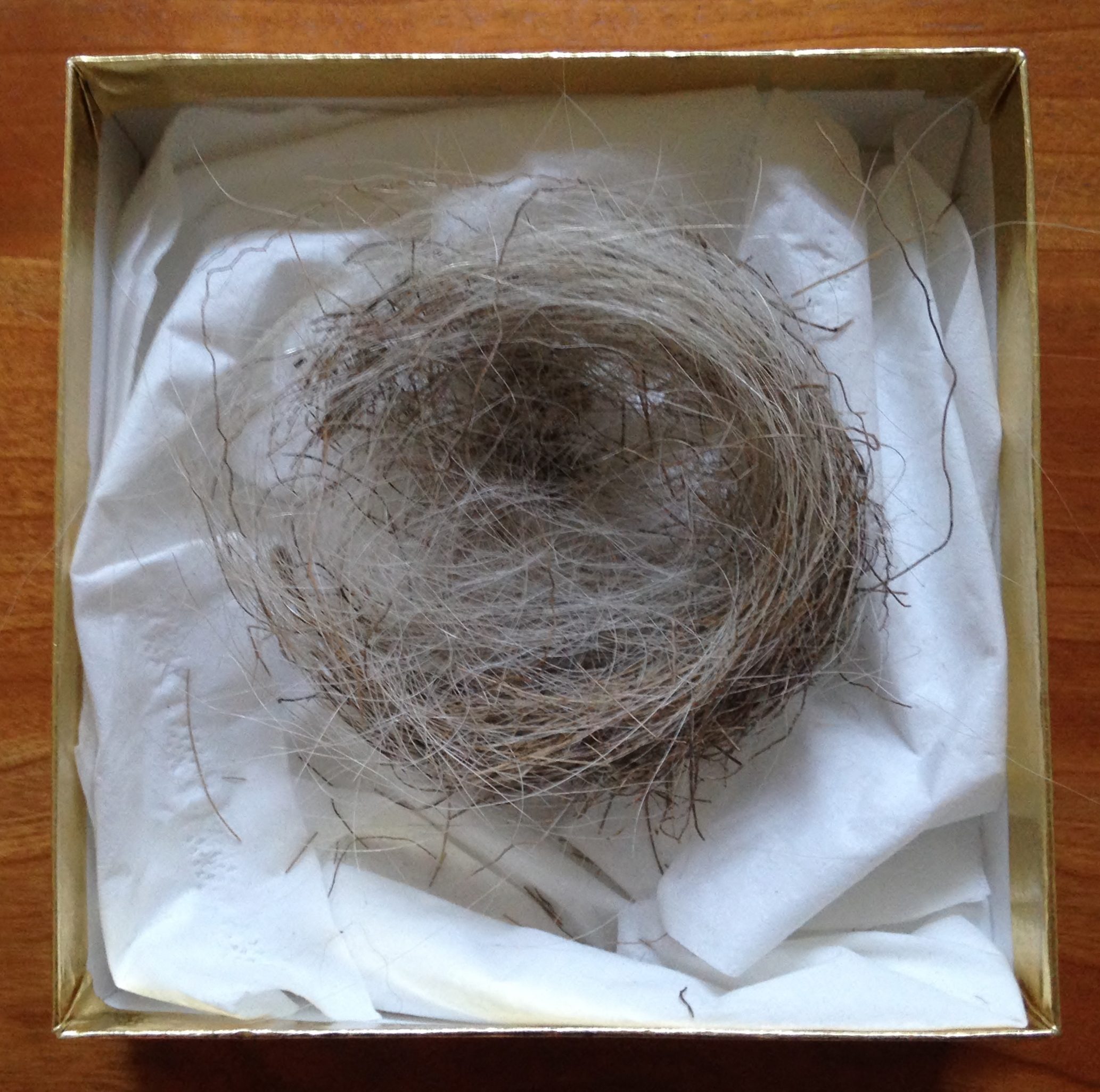Peter Turchi
A note to the reader, whoever you may be: this document falls somewhere between my prepared remarks and the remarks as delivered, which included several informal and no doubt inappropriate ad libs, none delivered with the solemnity expected of a graduation speaker. You get what you pay for.
Well, seriously: the WWC MFA graduations are the sweetest, strangest graduations I’ve ever seen; anyone who has attended one of them can tell you, they are as funny and moving as you’d dream a celebration of friends and colleagues would be. It was, truly, a great honor to be asked to speak to the 40th anniversary graduating class and their guests.
Apparently there’s some secrecy, some mystery, about the process, about how the graduation speaker is chosen. So in the name of transparency: it’s really just like the way the speaker is chosen for the toast of the graduates at the reception. Deb and Ellen take one of us down to the Root Bar and ply him, in this case, with shots…then you have about three hours to pull something together.
Deb always writes those lovely opening talks—I asked her how she does it, and she said, “Google.” So I thought I’d go with the 40th anniversary theme, and looked to see what else happened the year the program began. It turns out 1976 saw the birth of a new company called Apple, and something called The Muppets. The last slide rule was manufactured in the United States, Red Dye #2 was banned by the FDA, and Queen Elizabeth sent her first email.
Not much material for a speech there. I realized I needed something more writing-oriented.
How long is 40 years? A long time. Long enough to produce some very fine work. In fact, some excellent writers didn’t even live 40 years: they include Keats, Shelly, Marlowe, Kafka, Emily Bronte, Sylvia Plath, Oscar Wilde, and Stephen Crane, who was done at 29. By the time they were 40, those writers had accomplished far more than most of us will ever—
–well, hold on. I don’t think this is going in a good direction.
There may be a more optimistic way to look at it. Here are a few writers who published their first novels after age 40: Laura Ingalls Wilder, who we don’t talk about enough here, Daniel DeFoe, Marcel Proust, George Eliot, and Mark Twain. At 40, they were just getting going.
Everyone knows that the greatest virtue of a graduation speech is brevity. I’m going to make it quick, but I do want to say something, however brief, to all of the essential constituencies.
First, to the faculty, my esteemed colleagues: Good work.
Second, to the continuing students: You’re spending way too much time on those green sheets. Green sheets are just like annotations—the more you do, the faster you get at them. I, personally, have been to a lot of residences. So while I’ve got you here, this is how you sum up a residency:
Mc: Put this in your notebook.*
C Dale: Why did he put that in his notebook?
Note: At Warren Wilson, serious writers drink alone, in their rooms.
Debra Spark: Read Chekhov’s “A Joke.” Also Kundera’s The Joke.
Liam: Notebook? There’s an app for that.
Someone said, “It isn’t whether you win or lose…” That person was a poet.
Boz: Your character’s notebook is a visual. What kind is it, and what does that say about her?
Cafeteria, Day 8: Oh. I see.—that, too, is chicken.
“Put this in your notebook, Geronimo said in his class”? No no–“In his class, Geronimo said, Put this in your notebook.”
Chris Castellani: Put this in—my notebook.
Stephen Dobyns: And if you’ve lost your notebook, I’ll be happy to contribute one of my own.
Third: to our guests. I realize that made no sense at all. I apologize.
But now I’d like to talk to you—to the husbands and wives and partners, the mothers and fathers, the sons and daughters, sisters and brothers, other family and friends of this semester’s graduates. I haven’t gotten to meet many of you yet, so I hope you’ll forgive me if, in trying to imagine how you feel, I talk about my own family for a moment.
I came to love reading, and then writing, because of my mother. She read to my sister and me, and she listened as I told stories, read when I wrote them.
Some of you read Dickens and Jane Austen when you were young, Whitman and Dickinson; some of you grew up in houses full of books, or had a parent or aunt or uncle who recited poetry, maybe a grandparent who quoted Shakespeare. My mother’s family were farmers; my grandfather came here from Sicily when he was barely thirteen, both parents dead, and joined the Navy. There was not much in the way of literature in our house, unless you count the World Book Encyclopedia. But I suspect at least some of you, too, come from households where reading serious poetry and fiction was uncommon. So I’m not fishing for sympathy here; in fact, I suppose I’m bragging—not about myself, but about my mother and father.
My father was, for most of my childhood, both disappointed and a little worried about my interest in books; all of that reading seemed, to him, unnatural. But sometime during my college years, he began to accept the fact that I was going to devote myself to writing, and he and my mother paid my college bills, and were enthusiastic supporters when I went to graduate school, and then started to publish.
I say I’m bragging because, while they were proud, with very few exceptions, my parents didn’t enjoy what I wrote. Some of it deeply saddened my father. And while my mother is still around, and reads what she can, she’s told me that she can’t really understand my writing. She also tells me that she’s sorry I think I have to revise everything; and she wishes I wrote stories that were fun to read, and that she could show her friends.
And yet I count myself extraordinarily lucky: nearly all of my life, I’ve been surrounded by a few people who support what I do, even when the work itself gives them no pleasure.
I should add that my wife and son are musicians. I enjoy hearing them play—which is a good thing, since musicians tend to practice a lot. But I can’t say I love everything they play; the truth is, I don’t even understand some of what they play. Sometimes I make requests; but more often I try to listen, to find ways to appreciate what they’re trying to do.
But this isn’t about me: it’s about you. You’re here today because you care deeply about one—or at least one—of the poets and fiction writers graduating. You’re well aware of the investment that person has made to get here—not just the financial investment, which is considerable, but an investment of time and attention. Some of you have joined that person in making sacrifices for this day to happen—not just paying tuition, but skipping vacations, and eating a lot of pizza. I sincerely hope that, when you listen to or read that writer’s work, you feel genuine pleasure, and want to read more. That would be ideal.
But the odds are very good that, sooner or later, this writer you care about will write work you aren’t so enthusiastic about. That leaves you with a decision to make. The odds are even better that, sooner or later, this writer you care about will struggle with the work. You might even be tempted to say, “You look so unhappy—let’s just watch a movie.” And when the writer you care about says, “I’m not unhappy,” and turns back to the manuscript, looking for all the world like an unhappy person, you have a decision to make.
The decision you have to make is, were you just humoring this person for a while? Was your commitment for two years? Were you just interested in this writing thing so long as you got pleasure from the work? Or are you prepared to say, “I don’t understand this—or it’s not my cup of tea—but so long as it’s important to you, I support you”?
I think you’re going to do the right thing. I think that, because you’ve gone to the trouble of coming to Swannanoa, a place that’s hard to spell, and sitting here all of this time. So I thank you for your support of the artist as well as the art, and remind you that this isn’t the end.
Finally, for the graduating students:
I don’t think anyone’s mentioned that this is a significant moment for the program. This graduating class, the 40th anniversary class, is the last one that will receive walking sticks made from the native rhododendron. ** This is a good thing. In keeping with Warren Wilson’s environmental leadership, future graduates, beginning next winter, will receive LEEDS certified walking sticks, made out of recycled milk jugs.
Did I say recycled? I meant refilled. Refilled milk jugs.
Earlier in the residency I mentioned Mark Twain’s autobiography. Twain estimated that for most of his adult life he wrote, on average, 70,000 words a year. That’s misleading, though, since he wrote for only three months each year. So: 70,000 words in three months.
In January 1906, at the age of 70, he began dictating his autobiography. His wife, Olivia, had died two years earlier. They had already lost a young son and one of their three daughters. Their middle daughter had suffered a serious injury, and the youngest was epileptic. The purpose of the autobiography, Twain explained, was to provide for his surviving daughters. He would append a portion of this new work to each of his published books, which would, under the laws of the day, allow him to claim them as “new,” and so extend the copyright another 28 years, providing income for the girls through most of their adult lives.
After he started work, the middle daughter, Clare, was “happily and prosperously married.” Then, on the morning of Christmas Eve, 1909, Twain woke to voices outside his door. Jean, his youngest daughter, had suffered a seizure while taking a bath. His entry for that day begins, “Jean is dead! And so this autobiography ends. I had a reason for projecting it, three years ago; that reason perishes with her.”
But Twain kept writing throughout the day, and on Christmas Day, and the day after, remembering his daughter, reflecting on his losses. He paid tribute to her, and he struggled toward understanding, in pages of writing. Writing was not only how he spoke to the world; it’s how he engaged with it.
Twain is of course best known for Huckleberry Finn, a book about class, race, moral hypocrisy, sincerity, idealism, and a love of place. We might think of it as a comic novel, but when it was published it was severely criticized, even banned, not for its use of that racial slur that got it banned later, but because of its ideas. That the book can be both comedic and threatening is a testament to how well it mirrors the complexity of the world.
We remember Twain for his love of the Mississippi River, but that love, too, was tempered by a strong sense of loss—the river was rerouted, curbed, and illuminated, the steamboats of his childhood were replaced, and his brother had been killed in a boat explosion. Perhaps even worse, after traveling the globe, Twain saw that the Hannibal of his youth was filled with small-mindedness. Life on the Mississippi is at times very funny, at times angry, at times academic, at times nostalgic. Taken as a whole, it’s a remarkable illustration of a writer trying to decide how to make sense of his world.
During these residencies, we often feel removed from nearly everything happening off campus—it’s hard even to remember what day of the week it is. But this residency, and particularly in these past few days***, we’ve all had reason to consider again what we write about, and why, and how; we’ve had reason to consider what poetry and fiction can do, what they’re for.
In your readings we’ve heard ample evidence of engagement with historic events on a large scale, from the release of Nelson Mandela to the final days of a man informed by his involvement in war. We’ve heard moments of comedy, moments of solemnity, work that engaged with love and death, with celebration and loss. You’ve reminded us that we all observe, engage with, and reflect the world in our own ways—and if we take Alan Shapiro’s words to heart, and avoid imposing a stock emotion on people and events, we value the individual: both the individual moment and the individual voice.
None of us know where your work will take you—and that’s a good thing. That’s also why we don’t give you a map—we give you a walking stick. The purpose of this program was never to lead you to any particular approach, any particular view or method or style. Instead, the goal was to help you develop the tools and skills to help you get where you feel you need to go.
We know we’ll lose sight of you at times; we’re counting on you to report back, to tell us what you’ve found.
Congratulations.
*This section is so residency specific that in about three months none of us will remember what any of it meant, except: the fiction writers won the softball game.
**This business about the walking sticks is a complete fabrication, of course, but the gasps and other sounds of genuine dismay from the continuing students in attendance were extremely gratifying. Our rituals and totems are not without significance.
***Graduation was held on the afternoon of Friday, July 8. On July 5, Alton Sterling was killed by a police officer in Baton Rouge, LA; on July 6, Philando Castile was killed by a police officer in a suburb of St. Paul, MN; on July 7, five policemen were killed by a sniper in Dallas. News from “the outside world” doesn’t usually penetrate the residency, but this time it certainly did.








